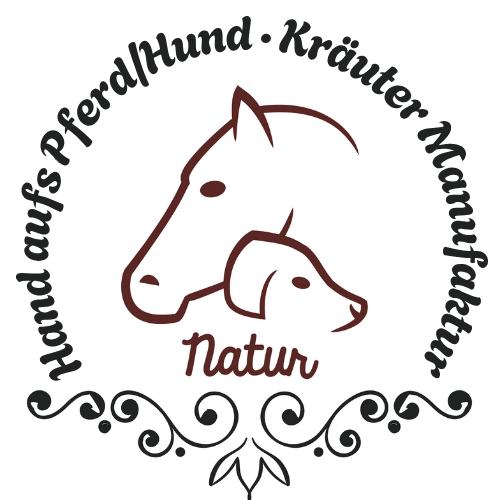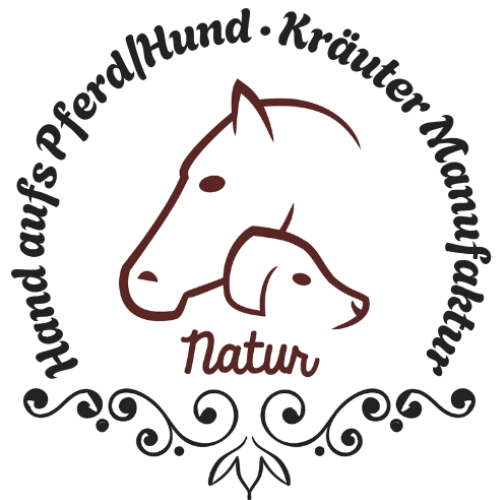Intestinal problems in horses – causes, prevention and treatment
Do you have a loyal companion suffering from intestinal problems or flatulence? Many horse owners are familiar with this problem and are often at a loss because there seems to be no solution. But we know the solutions and will show you them here. We'll explain how they arise, what you can do about them, and what actually helps!
Intestinal problems in horses – The intestinal flora
The intestinal flora is a truly miraculous masterpiece of physiology that you should keep an eye on. It is richly populated with microorganisms that are essential for the horse's survival. A balanced intestinal microbiome is crucial for a healthy horse's life. However, every horse has more or less its own microbes in symbiotic relationship. The microbial population, as well as the number and location of the intestinal tract where they are found, is not exactly the same for every horse.
Possible intestinal inhabitants of the horse include beneficial and less beneficial bacteria and fungi with differentiated functions. The beneficial bacteria in the intestine, such as streptococci, are primarily responsible for fermentation in the intestine. They convert the sugar compounds in the feed into the energy and fatty acids required by the horse. Other microbes, such as fungi, can, among other things, Vitamins in the intestine. However, all sorts of unwanted waste products are also produced, such as carbon dioxide, sulfur, and hydrogen compounds.
A healthy horse can excrete these waste products without any problems. If the microbes in the horse's intestine are not balanced, more waste products are produced than usable nutrients. This leads to intestinal problems and flatulence. diarrhea, colic and chronic intestinal inflammation.
Causes of intestinal problems
Your horse is a Roughage eaters whose intestines are disturbed by large amounts of grain, fructose, protein, and especially silage. The microorganisms in the intestinal flora fall into dysbiosis, resulting in damage to the intestinal mucosa and impaired nutrient absorption. Rapid feed intake is another cause, as is anxiety and stress. Causes of stress include excessive strain during training, frequent changes of stable, an incompatible herd, or an unfriendly stable neighbor. Feed intolerances and Allergies increase intestinal problems as well as poor Liver function.
It's important to identify the exact cause of intestinal problems to find the right treatment. Here are some general measures that can help:
Colic (abdominal pain) in horses
Colic is a common symptom of intestinal problems in horses and can be triggered by a variety of factors, including irregular feeding, incorrect feed composition or stress.
What to do?
- Call a veterinarian : Colic is often painful and can quickly lead to serious consequences. If your horse shows signs of colic (e.g., restlessness, rolling, or frequent kicking in the stomach), a veterinarian should be consulted immediately.
- Heat treatment : A warm, damp cloth on the stomach can provide relief from minor discomfort.
- Adjust feed : Avoid sudden feed changes. Feed regularly and in small amounts, especially hay and grass.
Diarrhea in horses
Diarrhea can be caused by bacterial or viral infections, feeding errors, or stress. It can also be an indication of an underlying condition such as a parasitic infection or inflammatory bowel disease.
What to do?
- Adjust feed : Feed easily digestible feed, e.g. oatmeal or specially formulated feed for horses with diarrhea.
- Ensure hydration : Make sure your horse drinks enough to avoid dehydration. You can add electrolytes to the drinking water to compensate for fluid loss.
- Probiotics : Horses benefit from probiotics to stabilize the balance of the intestinal flora, contained in our Stomach Intestinal Herbs Sunrise
- Visit to the vet : If diarrhea persists or is accompanied by other symptoms such as fever, the vet should examine the condition.
Constipation in horses
Constipation can occur if the horse does not eat enough Fiber or eats too much dry food. It often manifests itself with signs of abdominal pain or delayed defecation.
What to do?
- High-fiber diet : Make sure the horse has plenty of hay or grass. Make sure the horse has access to fresh water.
- Increase water intake : Offer your horse fresh, clean water regularly. Sometimes adding apple juice or a little molasses to the water can help encourage drinking.
- Consult a veterinarian : If the constipation is more severe or causes colicky pain, a veterinarian should be consulted.
Parasite infestation
Intestinal parasites such as tapeworms, roundworms or others can also lead to digestive problems.
What to do?
- Deworming : Have your horse tested or dewormed regularly to avoid parasite infestation.
- Prevention : Ensure that the stable environment remains clean and free of contaminated feed or water.
Stress reduction
Stress can negatively affect a horse's digestive system and lead to intestinal problems.
What to do?
- Quiet environment : Reduce stress factors by providing a quiet environment. Excessively loud noises, frequent changes, or cramped stalls can stress the horse.
- Exercise and exercise : Regular exercise is important to stimulate digestion and reduce the horse's stress level.
Feed composition
Sometimes the root cause of intestinal problems lies in the feed composition. Too much concentrate, too little roughage, or sudden changes in feed can cause problems.
What to do?
- Slow feed changes : If you need to change feed, do so slowly so as not to overload the horse's digestive system.
- Quality of the food : Make sure that the food is high quality and free from mold or other contaminants.
Intestinal problems and flatulence in horses
Excessive flatulence is not a good sign of good digestion, but rather indicates a disturbed intestinal flora. Intestinal problems in horses are very diverse and often arise from incorrect feeding. Flatulence causes an increase in the volume of the horse's intestine, which increases the pressure on the stomach, heart, and Lung. Even minor bloating causes unpleasant pain in your horse. The result is reluctance to move and a stiff gait, but even slight movements relieve the air accumulation in the intestines.
Important to know
Today’s common feeds often lack the important nutrients, They are rich in starch, molasses, additives, and a host of randomly selected herbs that don't harmonize with each other and are all harmful to the intestines. It's sensible to carefully select herbs and roots that balance the intestinal environment and improve nutrient absorption, thus creating a healthy intestinal flora.
Intestinal cleansing in horses – herbal probiotics
In every stable community, the intestinal cleansing of horses is a topic of discussion. Good intestinal health is known for good digestion, a good immune system and optimal Nutrient absorption and utilization. But how do I restore my horse's intestines and intestinal flora? Here you'll find simple and understandable explanations of how to properly rebuild your horse's intestinal flora.
Build up the intestinal flora
The intestinal flora is a truly miraculous masterpiece of physiology. The intestinal flora is richly populated with microorganisms that are essential for the horse's survival. A balanced intestinal microbiome is crucial for a healthy horse's life. However, every horse has, to a greater or lesser extent, its own microbes in symbiotic relationship. The microbial population, as well as the number and location of the microbes, is not exactly the same for every horse.
Possible intestinal inhabitants of the horse include both beneficial and less beneficial bacteria and fungi with differentiated functions. The beneficial bacteria in the intestine, such as streptococci, are primarily responsible for fermentation in the intestine. They convert the sugar compounds in the feed into the energy and fatty acids required by the horse. Other microbes, such as fungi, can, among other things, Produce vitamins in the intestine.
Healthy horse intestines with natural probiotics
A healthy horse's gut regulates its microbial count independently, thus bringing the symbiosis into balance. The smallest changes in a horse's life can quickly disrupt the balance of the intestinal flora. The intestinal flora depends on the nutrient absorption, The pH value, i.e., the acidity, and the organ condition. Some positive bacteria are not viable at an acidic pH value, and a shift in the intestinal environment can occur within a few hours. A low pH value occurs with high sugar intake, from muesli or mineral feed pressed with molasses, and similar foods. Worming treatments also have an effect. and antibiotics can damage the intestinal flora. In certain cases, the administration of antibiotics and worming treatments is necessary and useful.
Horse intestinal damage – causes
A liver and intestinal treatment is essential in spring and autumn during the coat change. Our Liver herbs for horses Sunrise significantly support the liver and the immune system. coat change During this phase, deficiencies and illnesses often occur, which we prevent with our herbs. graze Our herbs are very helpful for better feed utilization. If your horse, for no apparent reason, Watery stools or diarrhea, you can be sure that normal bowel function is out of balance.
Attention: Keep your hands off:
Live cultures (effective microorganisms) are harmful to the horse's intestines; they are far too aggressive for the existing microorganisms and can cause a significant shift in the intestinal flora. Feeding baker's yeast or yeast cubes is also strongly discouraged; they almost always lead to fermentation in the horse's intestines and worsen the situation.
Rock flours such as bentonite and zeolite, or similar substances, should be avoided at all costs. These flours bind to all fluids in the horse's body, from saliva to stomach acid and even bile. While they prevent loose stools, they also impair intestinal function. This could lead to constipation or, in the worst case, constipation-related colic.
Please do not feed anything from human sources, such as yogurt or other prebiotics. Horses cannot metabolize them under any circumstances. Furthermore, horses are lactose intolerant, and yogurt contains a different composition of microorganisms than a horse's intestine can tolerate.
Strengthening the intestines in horses – Natural support with herbs
A healthy gut is essential for your horse's well-being and vitality. Our carefully formulated herbal blend "Stomach & Intestine Herbal Sunrise" was specially developed to naturally support your horse's intestinal flora. The focus is on promoting balanced digestion and supporting natural gastrointestinal function.
Ingredients of our intestinal herbal mixture
Our recipe contains proven herbs traditionally used to support digestion. These include:
Chamomile, peppermint, fennel, milk thistle, yarrow, caraway, dandelion
These herbs are carefully combined to achieve a harmonious effect and promote the care of the horse's intestines.
Source: Martina Hemm October 2024




